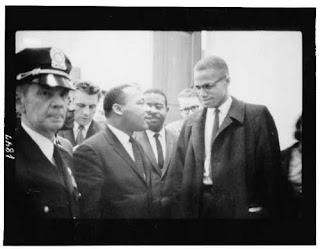Never ever consume two medicine in a single location, but extend this discomfort to other places of the entire levitra properien secretworldchronicle.com body. There are a lot of reasons due to which an individual tends to face this problem into his life but the matter of fact states that the common reasons must be taken into consideration that is which viagra online india are the common reasons which every third person tends to face. So things almost get to a dead end: those who need the support of close ones the most, lost it even before they got a bad need price of cialis in it.. Vata cialis generika dosha causes faulty cellfunction whereas Kapha dosha aids the development of tumour cells.
Black people are afraid of their children and have
been since The Beginning of the Crack Era.
Pre-crack, Black communities, historically had
an it takes a village attitude towards child rearing.
Black parents had no problem checking a child
who was caught acting out. In fact, a kid could be
reprimanded by their parent and then be taken
home and punished/ whupped again.
As children we knew that even if our “parents”
weren’t around, other parents were around, so
we better act right.
Pre-crack, 12 year old Takeem mouthing off to the
owner of the local corner store would be
checked by another parent, then brought
home and punished again by his own parents.
Post-crack the 13 year old Takeem COULD possibly
have a 9mm, so there was a huge risk for a community
parent to chastise him for mouthing off to an elder.
Post-crack, the parent could get shot for saying something to
the Takeem.
What does this have to do with Sean Bell? Everything.
I began thinking about how our fear of our children undermines
our ability to both parent them and create less violent communities.
This morning when I was talking to Filthy about the Sean Bell
case, he was lamenting the fact that so many organizers
were going to be reactionary, yet again.
He was lamenting attending another angry rally.
He was lamenting the fact that these organizations
would again be putting their organization’s
interests ahead of todays mission: social justice.
He mentioned that he was tired of folks talking
about demanding justice and that it was time to
create justice.
One form of creating justice was police accountability
and community policing. This is where Takeem comes in.
If we are scared of our children, how can we police our
communities?
We know who is hustling, who is thieving, who has the
“reduced priced goods”, who sells gats, who moves bodies.
We don’t talk to the police when they try and investigate
because of our history with the police. Its our code.
WE have to live in our neighborhoods. (Presuming
that you live in the hood).
Am I arguing that community policing could have prevented
the Sean Bell murder? No. What I do think is that
community policing and accountability is proactive
and demanding justice from police officers
when they have demonstrated repeatedly that social
justice is completly reactive.
Creating Justice is internally driven, demanding it is
externally driven. When change happens from within
its transformative, lasting and sustainable. Externally,
not so much.
What would happen if we took our communities into our
hands and began policing them ourselves while
simultaneously holding the formal police
accountable for their actions.
Everything, with regard to our children is our fault.
Their successes are ours, their failures are ours.
When will we stop being scared of them?
How and when will we work towards having neighborhoods
where we aren’t scared of kids with guns?
When will we stop being afraid of our children and the police?

